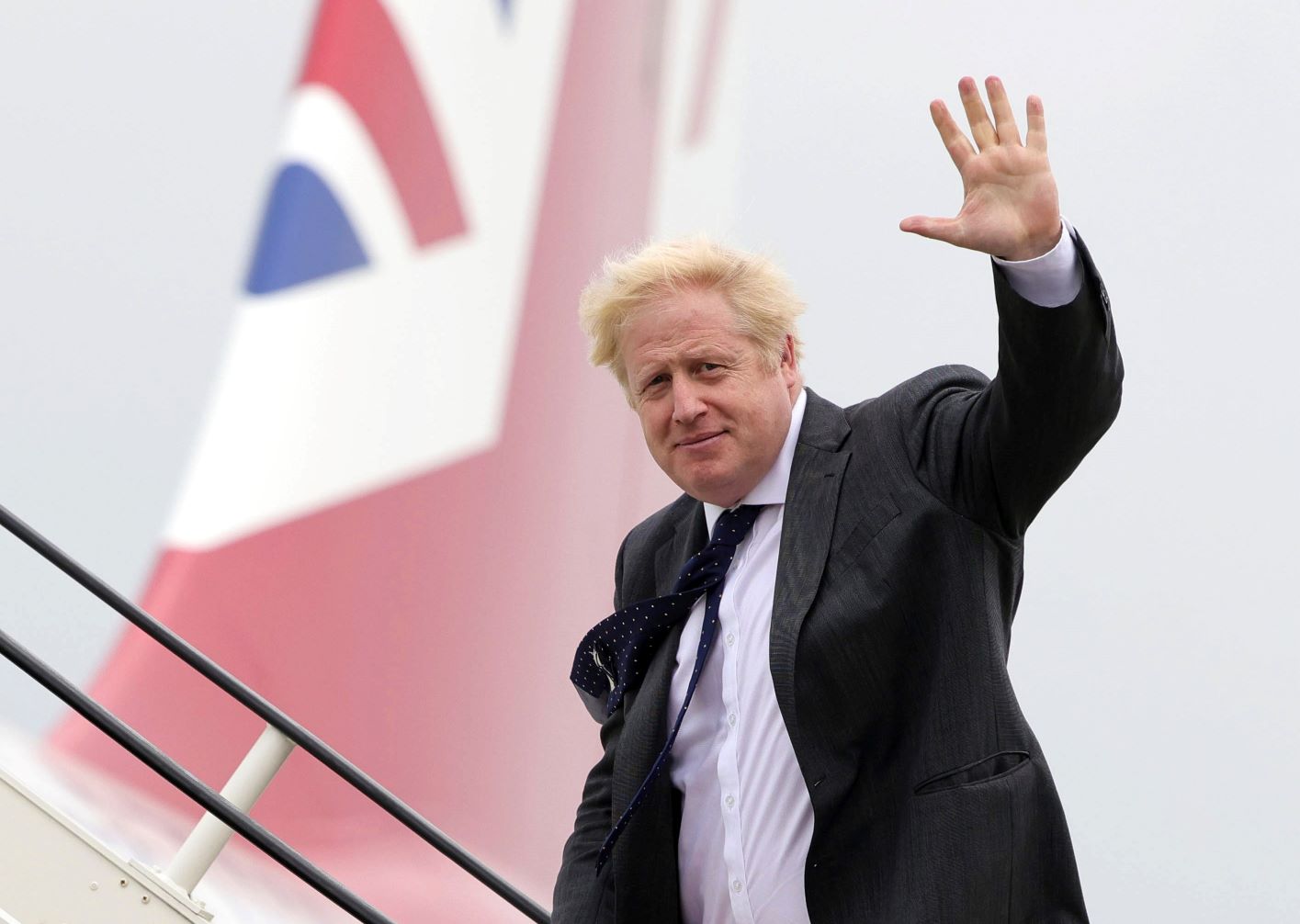Recent royal engagements abroad have focused strongly on climate and the environment yet back in the UK the Government has been moving in reverse. While this may provide members of the monarchy with opportunities to enhance their image both at home and abroad, it also has the potential to set the two parties on a collision course as COP28 approaches, comments Alex Penler.
Last week brought two Royal diplomatic visits, with King Charles III’s rescheduled state visit to France and Prince William’s trip to New York for Climate Week. Meanwhile back in London, Prime Minister Rishi Sunak, announced a U-turn on British Climate policy. It was certainly a strange day in London, when the Royal family was seen to be more in line with younger Brits on climate action than the prime minister.
As monarch in a constitutional monarchy, Charles has little political power. What he does have is immense symbolism and makes an excellent diplomatic envoy. As we saw with his mother, Queen Elizabeth II, the monarch also has the opportunity to act as a uniting and stable force in wake of tumultuous parliamentary politics.
The monarchy goes green
While Charles’ itinerary in Paris included a glittery formal dinner at the Hall of Mirrors at Versailles and a lauded speech to the Senate, it was his other stops that provided opportunities for the king to communicate with the French public, in line with a narrative that Macron was eager to promote. Before the trip, the French presidency stressed Charles and Macron’s shared commitment to protecting biodiversity and combatting climate change, to divert attention from tensions around Brexit and migration. In his speeches in France, Charles focused on his concerns around climate change and called for an “entente for sustainability” between France and the UK, which led to cheers of “Long Live the King” from the French Senate – surreal for a country that famously beheaded its own king. The trip ended in Bordeaux where Charles met with communities affected by the 2022 wildfires, visited an experimental forest, and toured a vineyard focused on sustainable winemaking.
Meanwhile in New York, Prince William unveiled the finalists for the 2023 Earthshot Prize, an award designed to “incentivise global urgent optimist and action to help repair the planet within this decade.” The charity is widely seen as William’s most ambitious project to date. The prince also attended Climate Week, the major summit that parallels the United Nations General Assembly, where he met with UN Secretary-General António Guterres and the President of Ecuador to discuss the fight against climate change.
Sunak changes tack
This work was in stark comparison to the UK Prime Minister, who last week was once again seen weakening the country’s action on climate goals, in a risky effort to boost his party’s popularity in the polls before a general election, expected in late 2024. Yet Sunak seems out of step with the rest of the world, as leaders gathered in New York and it is noteworthy that he himself chose not to attend Climate Week, the first UK prime minister in over a decade not to do so. Over the last few months, he’s walked back on or criticized a number of policies geared towards combating climate change and reaching net zero, despite a large majority (74 per cent) of the British public expressing worry about climate change. The Climate Change Committee, an independent non-departmental public body, formed under the Climate Change Act, estimated the change from 2030 to 2035 for the phase-out of petrol and diesel vehicles could add up to 110 million tons of carbon dioxide equivalent emissions. Sunak also announced a delay in encouraging people to switch to heat pumps from oil and gas boilers and erased policies that forced landlords to upgrade the energy efficiency of properties.
Sunak seems out of step with the rest of the world
While Sunak claimed he was putting “the long-term interests of our country before the short-term political needs of the moment,” it was clear he was doing the opposite. By relying on gas and oil, which are more dependent on the fluctuations of international oil prices (and the war in Ukraine, Russia, and Gulf countries), instead of the cleaner energy the UK produces, he actually puts British taxpayers at risk of increased costs. Sunak reiterated his plans to not restrict oil and gas exploration in the North Sea, a de facto expansion of current policy.
Contrasting optics
The announcement risks the UK’s ability to be seen as a climate leader in the world. On the BBC, former Conservative minister Alok Sharma, who chaired COP26 in Glasgow, said Sunak’s U-turn had been met with “consternation from international colleagues.” At the UN, former American Vice President Al Gore went further, saying “I have heard from many of my friends in the UK – including a lot of Conservative party members, by the way – who have used the phrase ‘utter disgust’ and some of the young people there feel as if their generation has been stabbed in the back.”
In this context, Charles and William have a role to play as envoys of the British people, the majority of whom want action against climate change. This is a strategic move as well, as younger generations, who feel the British monarchy is out of step with modern British life and would support a republic, are the most passionate about environmental action. William understands this particular angle well, which is perhaps why he chose to wade into New York’s East River to learn about how Oysters are cleaning the river with a group of school children. That his first stop was deep in a polluted river with the future generation who will be most impacted by climate change conveyed his deep interest in combatting climate change with an authenticity rarely seen among the British Royals.
All this takes place ahead of November’s COP28 conference in Dubai and sets up a large schism between Buckingham Palace and Downing Street. The annual UN climate summit brings world leaders together to discuss measures to combat climate change. In 2022, it was notable that then-Prime Minister Liz Truss asked King Charles not to attend, a request Rishi Sunak left in place when he took office. It was a missed opportunity diplomatically, as Charles’s long history of environmental activism gives him credibility in such forums and also provides the opportunity to showcase Britain’s leadership on climate. As the UK finds its star power diminishing on the world stage in the wake of Brexit, it is surprising, and perhaps short-sighted, that Britain might step away from this leadership. Instead, it is unclear if Charles or William will attend in November. In 2022, it was widely seen as Sunak preferring to keep the spotlight on himself, but in 2023, this would instead be seen as the UK abandoning its leadership and authority on environmental issues.
Questions around COP28
Sunak confirmed his plans to attend the summit in July but his attendance there may be seen as a shell. Notably, COP28 President-Designate Dr. Sultan Al Jaber met with both US President Biden and Charles the same month, as part of the Climate Finance Mobilsation Forum. The meeting was convened by US Special Presidential Envoy for Climate John Kerry, inspired by the work of Charles, as seen on display with the number of climate-finance related events on the French visit. In light of this, it would look even worse for Charles not to attend the summit, especially given his ties with the Emirati Royal families. If Downing Street announces once again that the monarch will not be attending COP28, it would signify just how insecure Sunak is and confirm Britain’s resignation of its status as a global leader, and the soft power that comes with it, in an ill-fated attempt to hold on to domestic power.
If Downing Street announces once again that the monarch will not be attending COP28, it would signify just how insecure Sunak is and confirm Britain’s resignation of its status as a global leader
In the coming month, Britain should announce its delegation and whether or not Charles will attend. While onlookers are not privy to the exchanges between Charles and Sunak, a continuation of the king’s green-focused engagements over the next few weeks could be a sign of displeasure with the prime minister’s policies. Yet a deliberate leak of Charles’s true opinion could backfire on the royals and be seen as the Palace trying to interfere with domestic politics. A number of high-profile environmental-related events would, however, shore up the Royals’ perception as climate advocates, providing the UK cover as they go out on the world climate stage in two months.
It was remarkably bad timing for the leak to the British press, which forced Sunak to make his U-turn announcement while the British Royals were out promoting Britain’s dedication to fighting climate change and environmental protection, highlighting the contrasting positions. Only time will tell if Sunak’s policy has earned him the votes he so sorely wants, but his credibility on the world stage has been weakened, while that of Charles has been strengthened. A smart tactic would be to employ a sort of bad cop-good cop approach, with Charles as the authentic climate envoy for Britain that he is attending COP28, which might allow the UK to save face internationally. It would remind world leaders where the British truly stand and provide ample cover in the British and international press. The next few weeks will be interesting for Royal, climate, UK political and diplomatic watchers alike.
All articles posted on this blog give the views of the author(s), and not the position of LSE British Politics and Policy, nor of the London School of Economics and Political Science.
Image credit: Frederic Legrand – COMEO / Shutterstock.com







